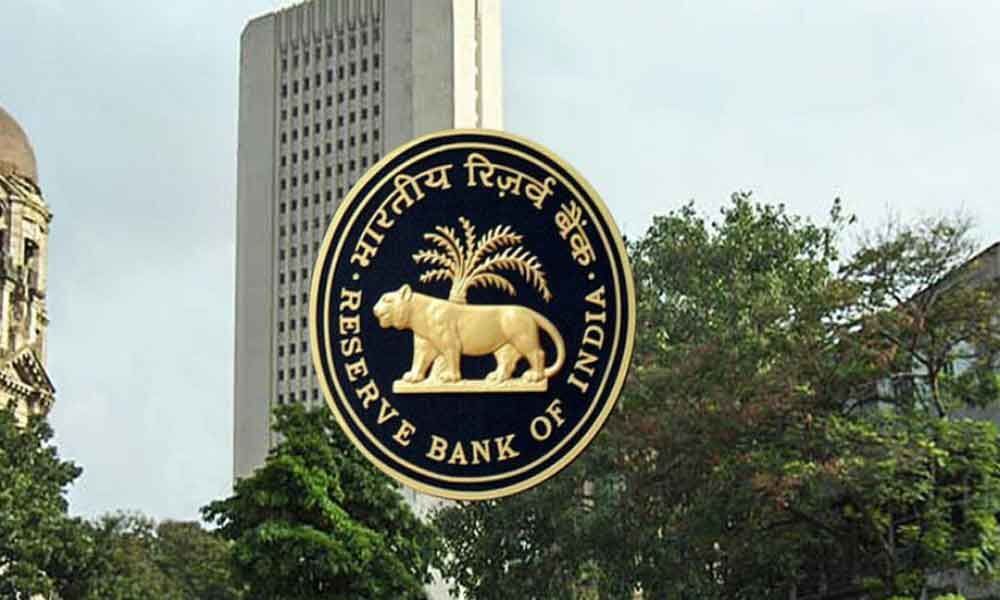Live
- Congress remembers Dalits only in bad times: Mayawati taunts Rahul Gandhi on Parbhani visit
- Have time for jailed leaders but none for achievers: BJP slams Delhi govt over chess champion’s pain
- Alliance University holds 13th Convocation, 1145 students receive degrees
- SC orders strict action against illegal construction
- Man kills sibling over property dispute
- Karnataka gets third govt cardiology hospital
- Minister Ramalinga’s efforts help safeguard over 10,000 acres of temple Land
- Laxminarayan College gets NAAC B+ accreditation
- Champions Trophy: India vs Pakistan Match Likely to Be Held on This Date
- Tigress Zeenat spotted in Purulia
Just In

The decision has been taken with a view to improve the ease of undertaking forex transactions.
Mumbai: In a bid to further improve the cash position of banks, the RBI on Thursday provided additional 2 per cent liquidity window to the lenders by tweaking liquidity coverage ratio (LCR) norms.
The LCR indicates the proportion of highly liquid assets held by banks to ensure their ability to meet short-term obligations.
"We have allowed additional 2 per cent of LCR to reckon as Level 1 high quality liquid assets for the purpose of computing the LCR of the banks. While this move will harmonise the liquidity requirements of banks with LCR, it will also release additional liquidity for lending by banks," RBI Governor Shaktikanta Das said after unveiling the first bi-monthly monetary policy for 2019-20.
He also said it has been decided that non-deposit taking systemically important non-banking financial companies (NBFCs-NDSI) in the category of Investment and Credit Companies (ICCs) will be made eligible to apply for Authorised Dealer Category II licence.
The decision has been taken with a view to improve the ease of undertaking forex transactions by increasing the last-mile touch points of regulated entities to sell foreign exchange for non-trade current account transactions. A detailed instructions in this regard would be issued by the end of April 2019, he added.
Globally, residential and commercial mortgages are supported by well-lubricated securitisation markets whereby mortgage originators package portfolios of mortgages and resell them in capital markets as mortgage-backed securities or covered bonds.
Well-functioning securitisation markets can enable better management of credit and liquidity risks on the balance sheets of banks as well as non-bank mortgage originators and, in turn, help lower the costs of mortgage finance in the economy.
In India, in contrast, the securitisation market is dominated by direct assignment and purchase of loan receivables of non-banks (including housing finance companies) by banks.
"In view of the benefits brought in by the standardisation of asset securitisation practices as also their role in enabling superior management of credit and liquidity risks as alluded to before, the RBI has decided to constitute a committee that will assess the state of housing finance securitisation markets in India," he said.
The composition and terms of reference of the committee will be announced shortly and the report will be due by the end of August 2019, he added.
Pursuant to the announcement made in the Union Budget for 2014-15 on "allowing international settlement of Indian debt securities", he said the RBI, in consultation with the government, had initiated discussions with International Central Securities Depositories (ICSDs) to permit their non-resident clients to transact in government securities.
"It is now proposed to commence the process of implementation of international settlement of Government securities by ICSDs. This would open up a new channel for non-residents to undertake Government securities transactions," he said.
Operational details in this regard will be worked out with ICSDs in consultation with the government and the Securities and Exchange Board of India (SEBI), he added.

© 2024 Hyderabad Media House Limited/The Hans India. All rights reserved. Powered by hocalwire.com







